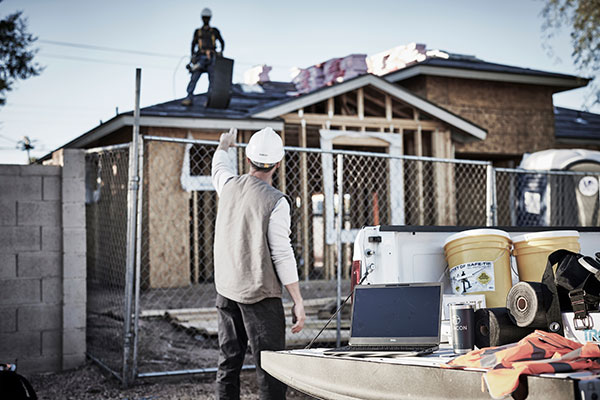How to Develop a Roofer Apprentice Program
Build Your Business
Author: Dan Stout | May 12, 2023
According to the Bureau of Labor Statistics, roofing employment is expected to grow 13%, or over 1,000 jobs, by 2028. This is good news for the industry, but it also means that employers can expect to run into a labor crunch. To avoid that headache, consider proactively cultivating new prospects by working with local organizations or schools to start a roofer apprentice program.

What Is a Roofer Apprentice Program?
Roofing apprentice programs are a time-tested way to pass on knowledge to the next generation. An apprenticeship is traditionally a paid, full-time position where a new worker is trained on the ins and outs of the trade.
Many modern programs tie an apprenticeship to course credit at a high school, college or vocational school. In these co-op classes, the student works in the field part time or full time for a set period, after which they return to the classroom. Some co-ops have recurring windows, so that a student worker may come on and off the workforce repeatedly, their skills growing each time.
Benefits of an Apprenticeship Program
In the case of a co-op, the student's pay might be supplemented by the educational institution, essentially giving the roofing company an employee at below-market cost. In addition, bringing young men and women into the fold not only supports the next generation of tradespeople, it also provides a defined employment track at your company.
Even better, young roofers on their first job are trained from day one on your in-house procedures, preventing the need to unlearn bad habits from a previous employer. In fact, many co-op programs are tied to shop or machining classes, meaning you won't need to spend much time on basics like how to adjust a safety harness or use a nail gun.
Drawbacks: Setting up Training
To make the most of having an apprentice, you'll need experienced roofers capable of fulfilling their own duties while also supervising a green worker. If your current employees are standoffish or unwilling to train the apprentice, then you'll be wasting your money and a young person's time.
Another common concern is the youthful nature of co-op workers. Maturity levels vary from student to student, and you can't know in advance how prepared your co-ops will be for the workforce. If this is a major hurdle, consider programs like Helmets to Hardhats that work with slightly older individuals transitioning from military service to the construction trades.
Getting Started
Roofing companies that decide they can handle young trainees often partner with a local school. If you can't find a school with an active roofer apprentice program, it may be worth your time to help set one up.
Start by researching other local trades to find what schools or organizations they're partnered with. Those schools' administrations already have the legal and logistical framework in place to run a co-op, so you won't have to reinvent the wheel. Still, expect to jump through a number of hoops. You'll likely have to provide a list of skills that co-op workers will learn, and in the case of high schools, anticipate background checks for everyone who will be working with the student.
Starting a co-op program from scratch can be a lot of work, but it can yield massive benefits in the long run. It's an excellent way to guide young people to consider the roofing trades, and it can give your company the inside track on capturing the best of the next generation of roofers.